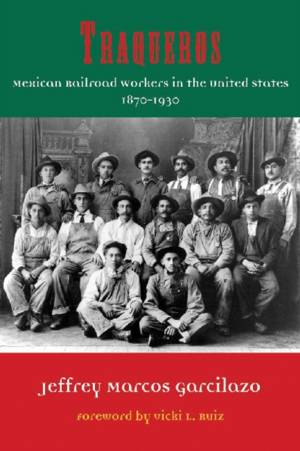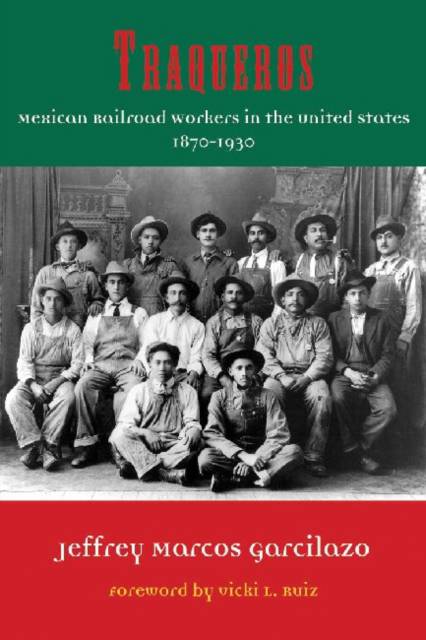
- Retrait gratuit dans votre magasin Club
- 7.000.000 titres dans notre catalogue
- Payer en toute sécurité
- Toujours un magasin près de chez vous
- Retrait gratuit dans votre magasin Club
- 7.000.000 titres dans notre catalogue
- Payer en toute sécurité
- Toujours un magasin près de chez vous
60,95 €
+ 121 points
Format
Description
Perhaps no other industrial technology changed the course of Mexican history in the United States-and Mexico-than did the coming of the railroads. Tens of thousands of Mexicans worked for the railroads in the United States, especially in the Southwest and Midwest. Extensive Mexican American settlements appeared throughout the lower and upper Midwest as the result of the railroad. Only agricultural work surpassed railroad work in terms of employment of Mexicans. In Traqueros, Jeffrey Marcos Garcílazo mined numerous archives and other sources to provide the first and only comprehensive history of Mexican railroad workers across the United States, with particular attention to the Midwest. He first explores the origins and process of Mexican labor recruitment and immigration and then describes the areas of work performed. He reconstructs the workers' daily lives and explores not only what the workers did on the job but also what they did at home and how they accommodated and/or resisted Americanization. Boxcar communities, strike organizations, and "traquero culture" finally receive historical acknowledgment. Integral to his study is the importance of family settlement in shaping working class communities and consciousness throughout the Midwest. "Traqueros is a significant contribution to the scholarly literature of United States labor history, Chicano social history, and ethnic labor history."-Juan Gómez-Quiñones, author of Chicano Politics "Traqueros is particularly important because of the originality of the research from numerous archives. Several interviews further enrich the work. Highly recommended."-Dionicio Valdés, author of Barrios Norteños JEFFREY MARCOS GARCÍLAZO received his doctorate from the University of California at Santa Barbara and was assistant professor at the University of California, Irvine, before his untimely death in 2001. VICKI L. RUIZ is professor of history and Chicano/Latino studies at the University of California, Irvine.
Spécifications
Parties prenantes
- Auteur(s) :
- Editeur:
Contenu
- Nombre de pages :
- 246
- Langue:
- Anglais
- Collection :
- Tome:
- n° 6
Caractéristiques
- EAN:
- 9781574414646
- Date de parution :
- 15-12-12
- Format:
- Livre relié
- Format numérique:
- Genaaid
- Dimensions :
- 152 mm x 229 mm
- Poids :
- 512 g







